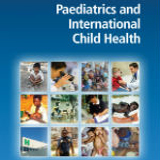
Abstract
Background:
Despite considerable improvements in reproductive and newborn health throughout the world, relatively poor outcomes persist in areas plagued by conflict or political instability.
Objectives:
To assess the contribution of areas of conflict and instability to global patterns of stillbirths and newborn deaths and to identify opportunities for effective intervention in these areas.
Methods:
Analysis of the available data on stillbirths and neonatal mortality in association with conflict and governance indicators, and review of epidemiological and political literature pertaining to the provision of health and public services in areas of conflict and instability.
Results:
Of the 15 countries with the highest neonatal mortality rates in the world, 14 are characterized by chronic conflict or political instability. If India and China are excluded, countries experiencing chronic conflict or political instability account for approximately 42% of all neonatal deaths worldwide. Efforts to address adverse reproductive and newborn outcomes in these areas must adapt recommended intervention protocols to the special security and governance conditions associated with unstable political environment.
Conclusion:
Despite troubling relative and absolute indicators, the special requirements of improving reproductive and neonatal outcomes in areas affected by conflict and political instability have not received adequate attention. New integrated political and technical strategies will be required. This should include moving beyond traditional approaches concerned with complex humanitarian emergencies. Rather, global efforts must be based on a deeper understanding of the specific governance requirements associated with protracted and widespread health requirements. A focus on women’s roles, regional strategies which take advantage of relative stability and governance capacity in neighbouring states, virtual infrastructure, and assistance regimens directed specifically to unstable areas may prove useful.